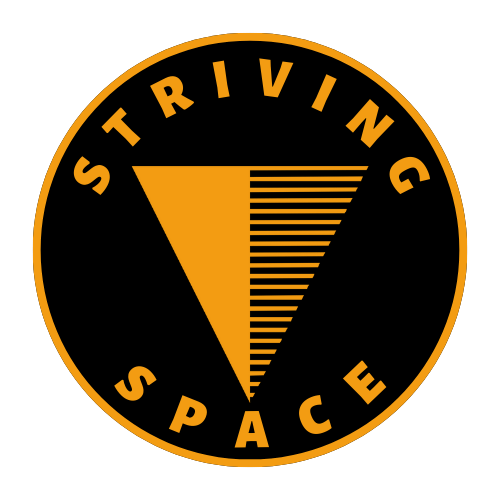The world is full of creative people. From singers and songwriters to painters and sculptors, from designers and writers to photographers and filmmakers, there is a multitude of ways to express one’s creativity. But how can you make a living from your art?
There are many different ways to make a living from your creativity. You can sell your products or services directly to customers, or you can license your work to other businesses. You can teach workshops or classes, or you can offer consulting services. You can even create and sell digital products, such as ebooks or online courses.
The most important thing is to find a way to monetize your creativity that is sustainable and that you enjoy. There is no one-size-fits-all answer, and what works for one person may not work for another.
Why is it important to pursue your creative passions?
There are many reasons why it is important to pursue your creative passions. For one, it can be a very fulfilling and rewarding experience. When you’re doing something you love, it’s easier to stay motivated and focused. You’re more likely to put in the time and effort to improve your skills and achieve your goals.

Creativity can also help you to express yourself in unique and meaningful ways. It can be a way to connect with others, share your ideas, and make a difference in the world. When you create something, you’re putting a piece of yourself out there for others to see. This can be a powerful way to connect with people on a deeper level.
In addition, pursuing your creative passions can help you to:
- Reduce stress and anxiety. When you’re engaged in a creative activity, it can help to take your mind off of your worries and problems. This can be a great way to relax and de-stress.
- Boost your self-esteem. When you create something, it can give you a sense of accomplishment and pride. This can help to boost your self-esteem and confidence.
- Improve your problem-solving skills. Creativity often involves coming up with new and innovative solutions to problems. This can help you to think more creatively and solve problems more effectively in other areas of your life.
- Increase your happiness and well-being. Studies have shown that people who are engaged in creative activities are happier and have a higher sense of well-being. This is likely because creativity allows people to express themselves and connect with others in meaningful ways.
If you’re not sure what your creative passions are, take some time to explore different activities and see what you enjoy. There are endless possibilities, so don’t be afraid to try something new. The most important thing is to find something that you enjoy and that makes you feel good.
Once you’ve found your creative passions, make a commitment to pursuing them. Set aside time each day or week to work on your creative projects. Don’t be afraid to share your work with others and get feedback. The more you create, the better you’ll become at it.
Pursuing your creative passions is an important part of a well-rounded life. It can help you to be happier, healthier, and more fulfilled. So don’t be afraid to let your creativity shine!
Disclosure: I may earn a small commission if you buy something through my links in this content. This helps support my work, but my opinions and reviews are independent, not influenced by any affiliate partnerships.What are some of the challenges and rewards of being a creative professional?

Being a creative professional is a unique and rewarding path, but it is not without its challenges. Some of the most common challenges faced by creative professionals include:
- Finding your niche. In a crowded and competitive marketplace, it can be difficult to find a niche where you can stand out from the crowd. It takes time, effort, and experimentation to discover your unique voice and style.
- Building a following. Once you have found your niche, you need to build a following of people who are interested in your work. This can be a slow and gradual process, and it requires consistent effort to promote your work and connect with potential fans.
- Monetizing your work. It can be difficult to make a living from your creative work, especially in the early stages of your career. Many creative professionals have to supplement their income with other jobs or rely on grants or scholarships.
- Dealing with rejection. Rejection is a part of the creative process, and it can be discouraging to have your work rejected by galleries, publishers, or other gatekeepers. However, it is important to remember that rejection is not a reflection of your worth as an artist.
- Managing your time and energy. Creative work can be demanding, and it can be difficult to balance your creative pursuits with other commitments such as work, family, and social life. It is important to learn how to manage your time and energy effectively in order to stay productive.
Despite the challenges, there are also many rewards to being a creative professional. Some of the most common rewards include:
- The freedom to express yourself. Creative work allows you to express yourself in unique and meaningful ways. It can be a form of self-discovery and a way to connect with others on a deeper level.
- The satisfaction of creating something from scratch. There is a deep sense of satisfaction that comes from creating something from scratch. When you see your work come to life, it can be a powerful and motivating experience.
- The opportunity to make a difference in the world. Creative work can have a positive impact on the world. It can inspire, educate, and entertain others. It can also be a powerful tool for social change.
- The chance to meet other creative people. Being a creative professional gives you the opportunity to meet other creative people from all over the world. This can be a stimulating and enriching experience, and it can help you to learn and grow as an artist.
- The potential to achieve success. If you are successful, you will have the opportunity to do what you love every day and make a living from it. This is a dream for many people, and it is a testament to the power of creativity.
Being a creative professional is a challenging but rewarding path. If you are passionate about your work and you are willing to put in the effort, you can achieve success.
Identify your niche and target audience
The first step to making a living from your creativity is to identify your niche and target audience. What are you good at? What do you enjoy creating? Who are the people who would be most interested in your work?
Once you have a good understanding of your niche and target audience, you can start to develop a plan for reaching them. This might involve creating a website, blog, or social media presence. You could also attend industry events or reach out to potential clients directly.
Build a portfolio and online presence
Your portfolio is your collection of best work. It’s what you’ll use to show potential clients and employers what you’re capable of. It is your calling card, so it’s important to make sure it’s impressive. Showcase your best work, and you should also include a brief overview of your experience and skills.
Make sure your portfolio is well-organized and easy to navigate. Include a variety of projects that showcase your skills and experience. Be sure to update your portfolio regularly with new work.
Your online presence is also important. Make sure your website and social media pages are professional and up-to-date. Use them to share your work, connect with potential clients, and build a following.
Set up a shop or online platform to monetize your creativity
Once you have a portfolio, you need to set up a way to sell your products or services. You can do this by opening a brick-and-mortar shop, or by setting up an online store.
If you’re selling digital products, you can use a platform like Etsy or Creative Market. You can also sell your products or services directly through your website.
In today’s digital age, there are more opportunities than ever before to monetize your creativity. Whether you are a writer, artist, musician, or designer, there are a number of ways to turn your talents into income.

Here are a few ideas for monetizing your creativity:
- Sell your products or services directly to customers. This is the most direct way to monetize your creativity. You can sell physical products, such as paintings, sculptures, or handmade goods. You can also sell digital products, such as e-books, online courses, or templates. If you offer services, such as writing, editing, or design, you can sell your time and expertise to clients.
- License your work to other businesses. If you create original works, such as photographs, illustrations, or music, you can license your work to other businesses for use in their products or marketing materials. This can be a great way to generate passive income from your creativity.
- Teach workshops or classes. If you have expertise in a particular area, you can teach workshops or classes to others who are interested in learning more. This can be a great way to share your knowledge and skills while also generating income.
- Offer consulting services. If you have a deep understanding of a particular industry or niche, you can offer consulting services to businesses or individuals. This can be a great way to use your expertise to solve problems and generate income.
- Create and sell digital products. Digital products are a great way to monetize your creativity because they can be easily duplicated and distributed. You can create e-books, online courses, templates, or other digital products that can be sold to customers around the world.
The best way to monetize your creativity will depend on your niche and target audience. Experiment with different methods to see what works best for you.
In addition to the above, there are a number of other ways to monetize your creativity. For example, you can:
- Crowdfunding
- Affiliate marketing
- Brand sponsorships
- Patreon
- Subscriptions
By being creative and thinking outside the box, you can find ways to turn your talents into income. The most important thing is to start creating and sharing your work with the world. The more you put yourself out there, the more likely you are to find opportunities to monetize your creativity.
Promote your work
Once you have a portfolio and a plan for monetizing your creativity, it is essential to start marketing and promoting your work. This is the crucial step where you introduce yourself and your services to potential clients and employers.
There are numerous ways to market and promote your creative work. Some of the most effective methods include:
- Social media: Social media platforms are powerful tools for reaching a wide audience. By creating engaging and informative content, you can attract followers who are interested in your work. You can also use social media to connect with other creative professionals and build relationships with potential clients.
- Email marketing: Email marketing is a great way to stay in touch with potential and existing clients. By creating targeted email campaigns, you can share updates on your work, promote special offers, and drive traffic to your website or portfolio.
- Paid advertising: Paid advertising can be an effective way to reach a wider audience with your marketing message. Platforms such as Google Ads and Facebook Ads allow you to target specific demographics with relevant ads.
- Public relations: Public relations (PR) can help you to generate positive media coverage for your work. By reaching out to journalists and bloggers, you can increase awareness of your brand and attract new followers.
Network with other creatives
Networking is important for any business, but it’s especially important for creatives. By networking with other creatives, you can learn about new opportunities, share ideas, collaborate, and get feedback on your work.
You can network with other creatives online or in person. There are many different groups and organizations that you can join, or you can simply reach out to other creatives on social media.
Industry events
Attending industry events is a great way to network with other creative professionals and potential clients. By participating in conferences, workshops, and trade shows, you can build relationships and promote your work.
You can also submit your work to galleries, contests, and publications, or volunteer your time to creative organizations. This can help you get exposure and attract new customers.
The key to successful marketing and promotion is to be consistent and persistent. It takes time and effort to build a successful career as a creative professional. However, by putting in the hard work, you can achieve your goals and make a living from your creativity.
Final thoughts
Making a living from your creativity takes time, effort, and dedication. But if you are passionate about your work and willing to put in the hard work, it is definitely possible.
Things to remember:
- Be patient and persistent. It takes time to build a successful creative career.
- Be open to feedback and constructive criticism.
- Be willing to learn and grow. The creative landscape is constantly changing, so it’s important to stay up-to-date on the latest trends and technologies.
- Don’t be afraid to fail. Failure is a part of the creative process. Learn from your mistakes and keep moving forward.
Good luck and enjoy the journey!













